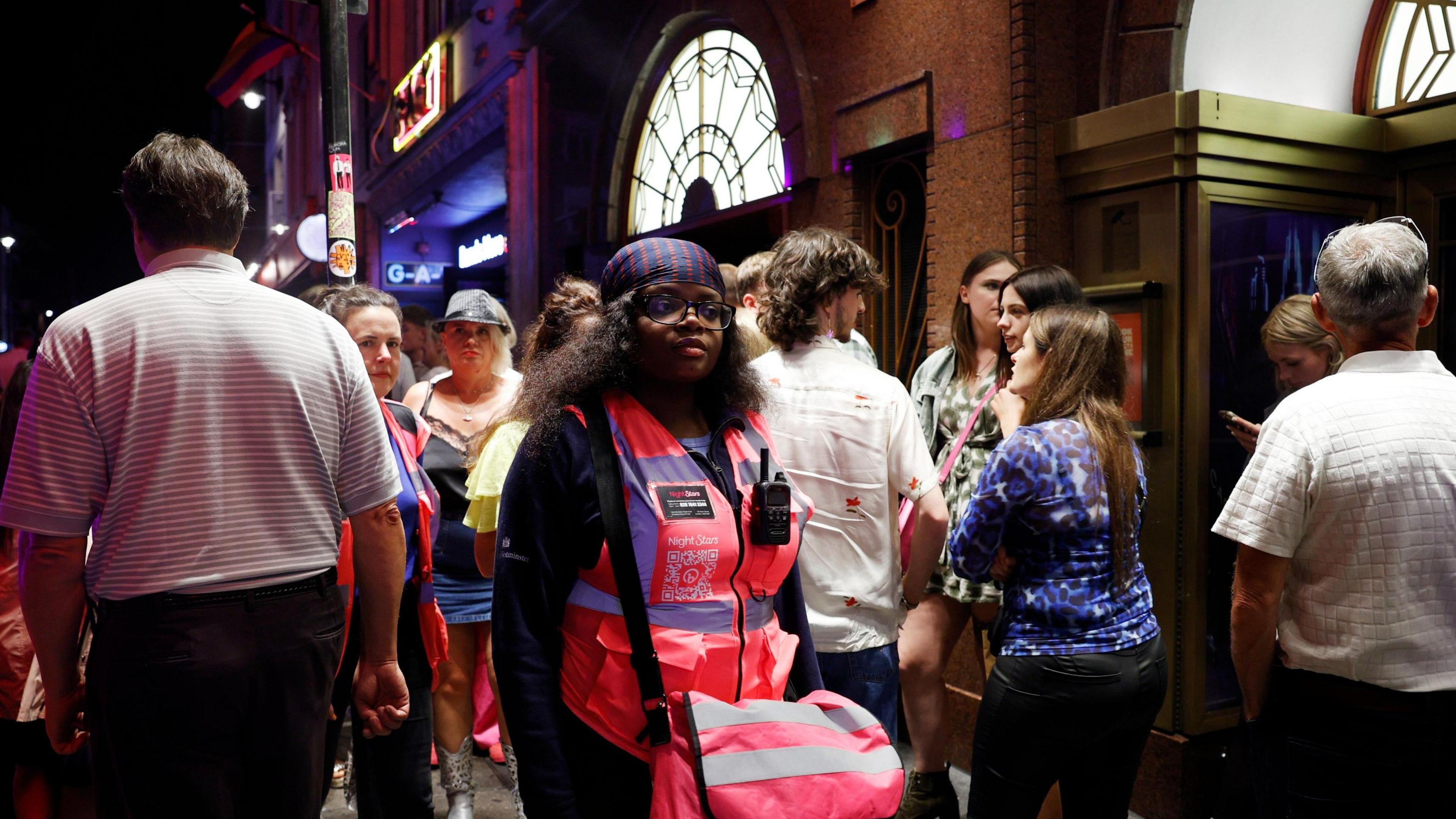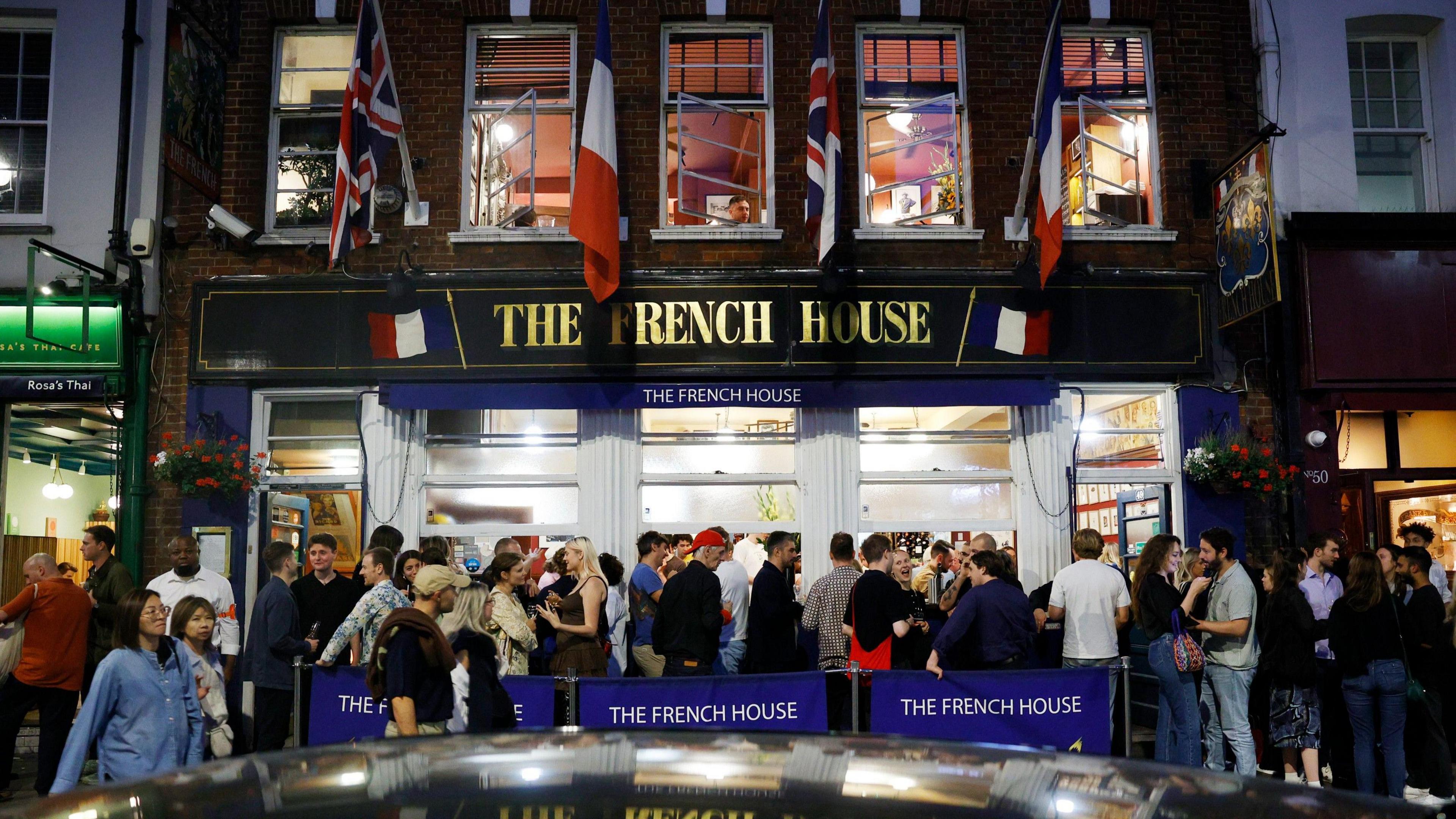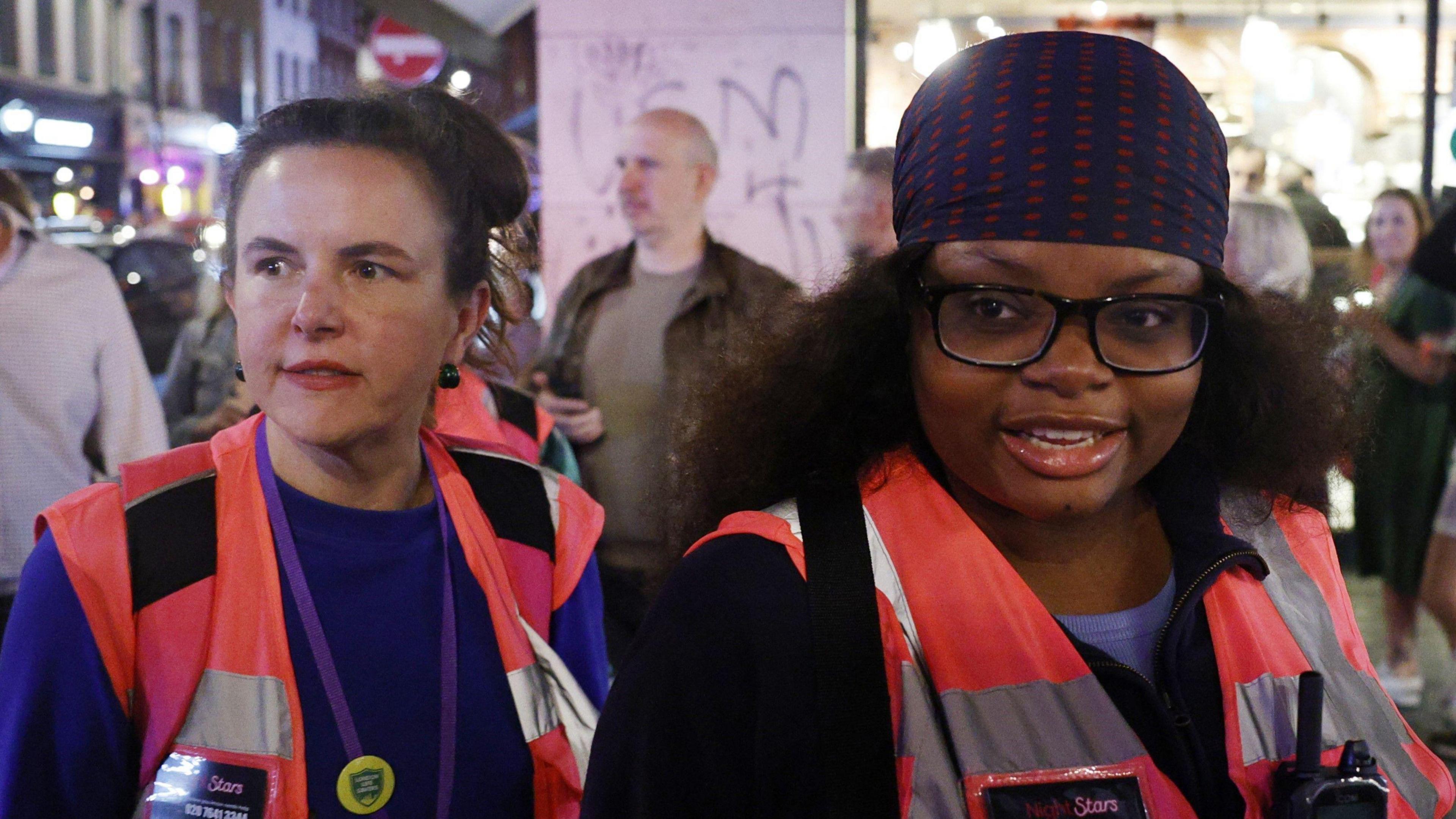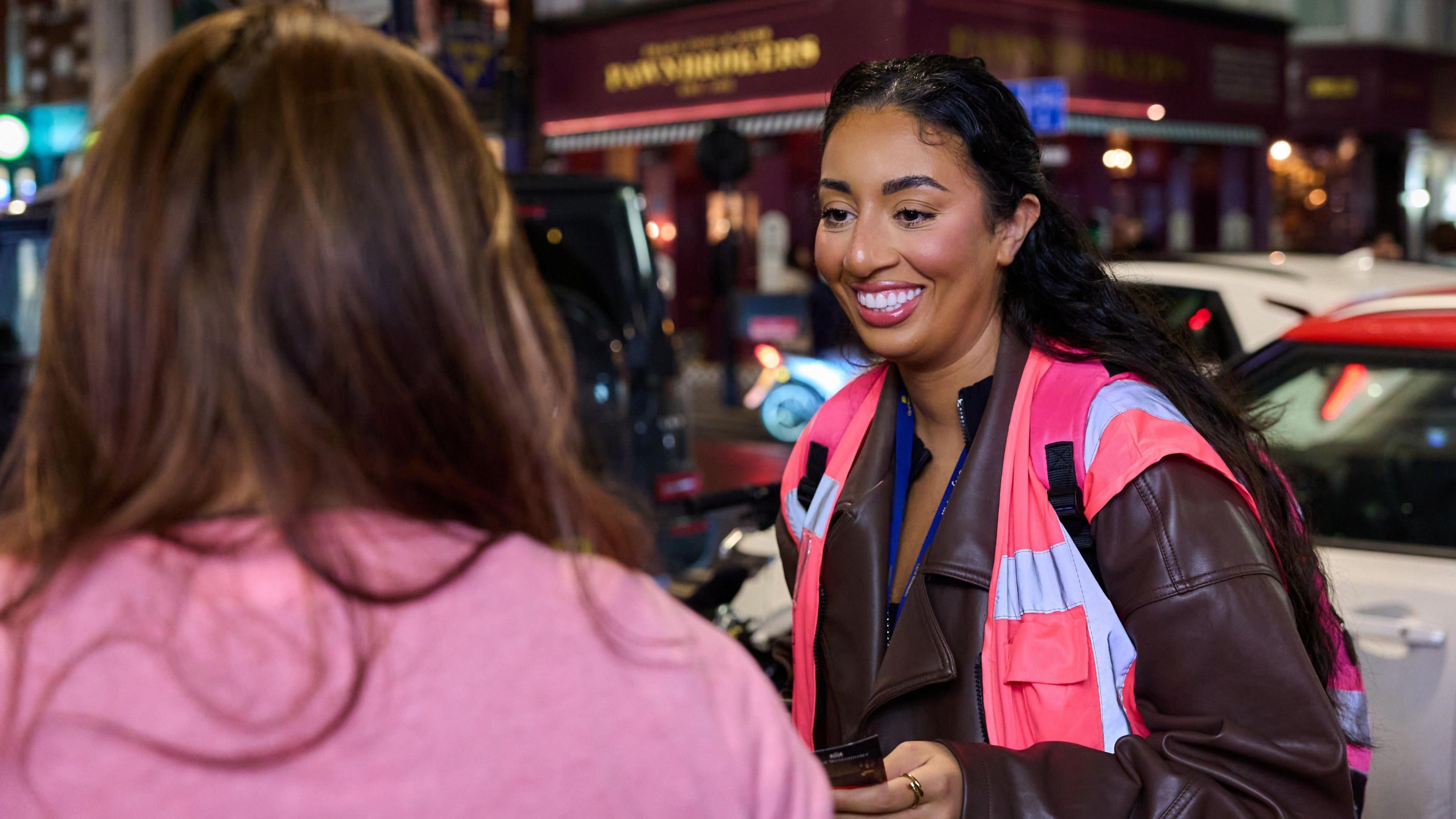The Night Stars helping revellers get home safe

Emmanuella Fadire is on hand when revellers become vulnerable on a night out
- Published
As crime increases in central London's popular nightlife hotspots, according to a council report, a group of volunteers are working to keep revellers safe.
Westminster City Council reported an 11% increase in sexual offences in the borough - 84% of those victims were women.
The authority's Night Stars provide an all-round service to those who could become vulnerable on a night out, armed with vomit bags, alarms, drink spiking test kits, plastic drink covers and flip-flops.
“It’s really rewarding,” said volunteer Emmanuella Fadire. “You help a lot of people and make them feel safe. You also have a nice time out and get a lot of people thanking you.”
As the council’s women’s safety and hate crime officer, Ms Fadire leads the Stars on most shifts.
At the start of a night shift, she hands out walkie-talkies and leads the volunteers out of their hub at St Anne’s Church on Dean Street.
Ms Fadire says she has helped many people in her six years as a volunteer then employee - from consoling those who have had their belongings stolen to protecting women from being followed by men they do not know.
“Everyone deserves a fun night out,” she said.

The Night Stars engage with as many as 20 people a night
The Night Stars began patrolling London's partying hotspots in March 2022 to assist anyone who becomes vulnerable due to intoxication get home safely.
They hand out water and sweets to help people sober up. Ms Fadire said flip-flops were often the most popular item in stock.
“We give them to people who have maybe lost their shoes or are just walking around barefoot," she said.
“A lot of people are either happy or confused by them.”
Volunteers could engage with as many as 20 people a night, Ms Fadire said.
'The energy is darker'
Rebecca Damm, 45, who started volunteering six months ago, said: “After midnight, it gets different - it feels a bit darker, the energy.
“It feels a little more chaotic and when it gets chaotic, you feel people can become more vulnerable and then you get more people, perhaps, approaching vulnerable people.”
Ms Damm said: “We see a lot of young women come out of bars and lurkers start to walk over and befriend them. I haven’t seen a group of girls not handle themselves but you can see the lurkers waiting for that kick out."

Rebecca Damm, left, and Emmanuella Fadire often tour Soho as Night Stars
Daniel Khalid, 24, has been volunteering for five years and said he would see the same men loitering around.
Greek Street had been a particular trouble spot but things were "getting better”, he said.
Given the tourist hotspots they work in, the Night Stars often help holidaymakers.
On one occasion, the team helped a family visiting from Denmark find accommodation after an issue with their booking.
Ms Damm said: “They came back and gave us a card and sweets as a thank you. They also made a donation.”
'Our priority is you get home'
Westminster City Council's annual survey found a third of women in the borough had had a personal experience of street harassment, and 45% reported feeling unsafe at night.
Crime has also doubled in two years to on average 216 incidents a day and is costing the council £371m, according to an analysis of crime figures.
The majority of these (60%) were theft offences with many happening in the West End or St James’s at night.
The same research found Westminster City recorded more than 90,000 criminal offences, more than double the next highest borough.
In response, businesses are being trained in stamping out sexual harassment in their venues.

Councillor Iman Less says the scheme provides women with more security on nights out
Labour councillor Iman Less, the council's nightlife champion, said: “Our main priority is to make sure you get home. We have a different role to the police. We have a different role to the ambulance. We have a different role to security or bar staff.”
Ms Less said the Night Stars could provide women with an "added sense of security".
Estella Adeyeri from the Good Night Out Campaign, said the Night Stars provided a "vital service the police cannot".
She said in a climate where "trust in policing is so low, providing an avenue for people to seek help without incriminating themselves is important".
London's nightlife venues struggling, City Hall told
- Published27 July 2024
What it's like to go clubbing in an abandoned Ikea?
- Published4 November 2023
Six in 10 London LGBTQ+ venues shut since 2006
- Published9 February 2024
The 34-year-old communications coordinator said: “If someone’s over-intoxicated, maybe because they’ve consumed an illegal substance, they’re still vulnerable.
"They might not want to approach someone who is going to criminalise that activity rather than looking at their vulnerability, looking at them without any judgement and saying, ‘you know, that person just needs help’."
To Ms Fadire, there is no silver bullet to making a night-out safer.
Instead, she suggests rethinking how we licence venues selling cheap drinks and wants establishments to do more to help patrons sober up before leaving.
The Met Police has been contacted for comment.
Listen to the best of BBC Radio London on Sounds and follow BBC London on Facebook, external, X, external and Instagram, external. Send your story ideas to hello.bbclondon@bbc.co.uk, external